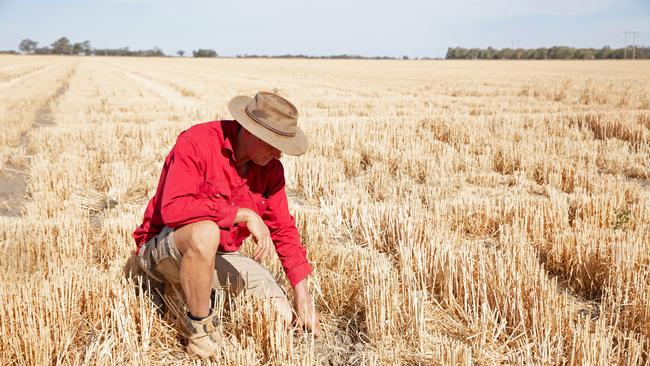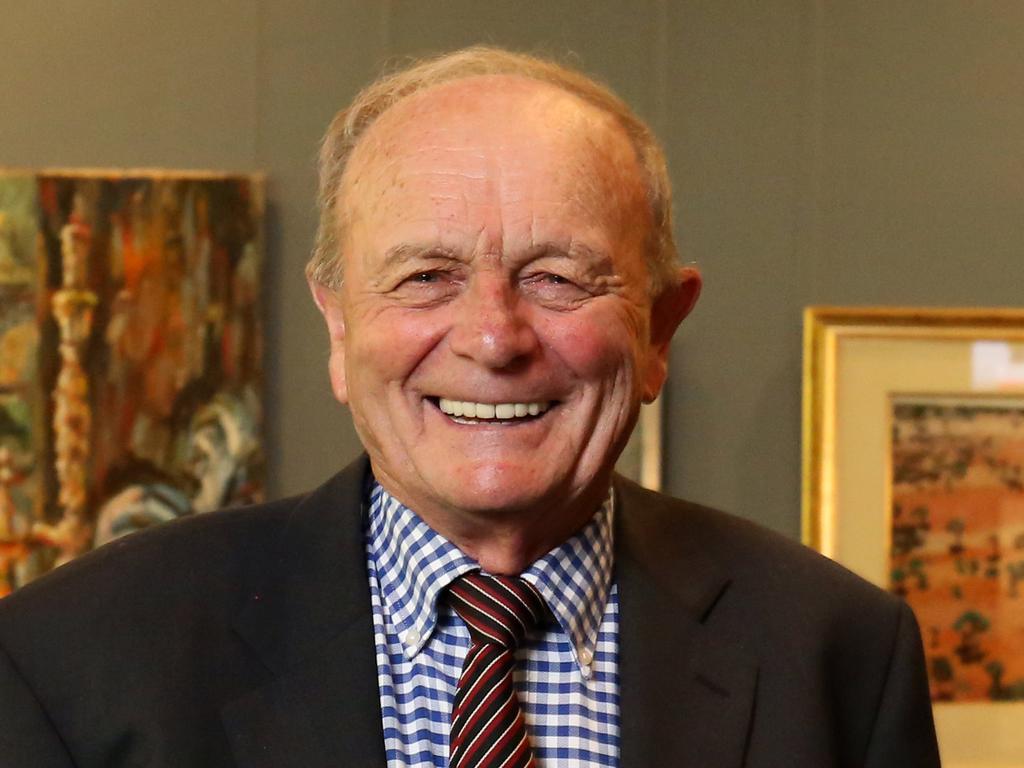The super tax winners are financial advisers
Financial advisers are being flooded with calls from family farmers and business people wanting to move assets now before a tax on unrealised gains in super hits.

Accountant Katie Timms is busier than usual at this time of year. The phone is ringing hot as some of her clients start to panic over the proposed tax on super funds above $3m.
Federal Treasurer Jim Chalmers’ plans to push ahead with the tax has created a boon for the financial planning industry.
Perth-based Timms’ clients are among more than 80,000 Australians, particularly those with business properties or family farms in their super funds, who are waking up to the fact that they could be hit with a radical new tax, which has the potential to create dangerous precedents for the broader Australian tax system.
Under the federal government’s plan, the new tax will apply from July 1 this year. It’s just over five weeks away, despite the fact that no one can be 100 per cent sure exactly what it will entail until it has passed the Senate later this year.
“The tax has been around in a vague form since February 2023,” says Timms, superannuation partner and SMSF specialist with RSM Australia.
“But over the past week we have seen more panic from people.
“People are really worried that they are going to run out of time.”
Timms says people are very unsettled.
“One client said he had closed out all his term deposits so he could be ready with cash to take it out of his super fund.”
Timms has a large client base in the farming sector in WA, where rural land prices have risen sharply in recent years. It’s an area where farmers with rural property in their super funds could be particularly hard hit.

The issue is not just that it involves an extra 15 per cent tax rate imposed on funds with balances $3m and over, it is that it will apply to any increase in value of the fund.
It will come from a combination of earnings (say from dividends, rents and interest) but also on the increase in value of any assets in the fund over the year.
Some, particularly those with property and unlisted assets in their fund, will be scrambling to find income to pay the new tax which could be well in excess of any actual income generated by the fund over the year.
Those who sell assets to reduce their fund below the $3m are very likely to face hefty capital gains tax bills on assets they have had in their fund over the long term.
As Timms points out, when the tax was first proposed in February 2023, people who could potentially be affected were assured they would have plenty of time to get their affairs in order ahead of the start date.
Until the election, the proposed tax was blocked in the Senate thanks to the stance of a group of independents.
Now, with the new Senate set for July 1, the legislation as proposed looks set to pass. The only question seems to be if the Greens will get their way and could introduce provisions to make it even harsher, either in terms of a lower threshold (they want $2m) or other tweaks.
Timms flew to the Esperance office of RSM last week, for meetings with worried regional clients.
Another Perth accountant Greg Bentley, director of Opulen Accounting and Superannuation, says he started getting worried calls from his clients after the election result a few weeks ago.
He says the trickle of emails and calls has escalated over the past few weeks.
“I had two people email me on election night,” Bentley says.
“We’ve had two or three people a day calling me, concerned about the tax.
“There is a big variety of people, not just the ultra rich. People are asking what they should be doing?
He thinks there’s farmers who might not have thought they’d be caught up in the tax, but they likely will.
“Farm prices in some areas of Western Australia have grown exponentially in the last five years, probably around five fold.”
Sydney-based financial planner Gareth Colgan, of Wellbeing Wealth, says the new tax will mean more business for financial advisers and accountants as people with higher super balances look at potentially restructuring their financial affairs.
He says his clients who may be affected by the new tax feel the proposed legislation is a “breach of trust” which could have many longer term repercussions about how Australians structure their financial affairs.
“It’s almost un-Australian to be taxing unrealised gains,” he says.
Until recently, the simplest and most financially attractive investment vehicle was superannuation where actual earnings were taxed between zero (for funds in pension mode) and 15 per cent (for fund or part of funds in accumulation mode.)
Now that is changing with clients, particularly older clients and those with larger balances, reconsidering their superannuation strategies.
“It’s a huge opportunity for financial advisers to be adding value to their clients on an ongoing basis,” Colgan says.
We are being punished
Charlie Viola, the executive chair of Viola Private Wealth, says the proposed tax will impact some 80 per cent of his firm’s clients.
“They are asking ‘Why is the government attacking super again?’ They have spent a lifetime seeking to get their money in the right bucket to help them fund their retirement, and now it feels like they are being punished,” Viola says.
He says there is also “real uncertainty” as to how the new tax will work from an administrative point of view.
Advisers and accountants are telling their clients to start doing their homework on how they could be affected by the new legislation, but to sit tight and not take any action until they see what is actually passed into law.
But some super fund members with larger balances are already rethinking their long term attitude to super and are already pulling money out of their fund ahead of June 30.
There is increasing worry about a powerful Labor Government, with no real Opposition, pushing ahead with the proposal in the face of many concerns about how it will operate.
The new parliament means a sharp shift to the left. An immensely powerful Labor government elected with a massive majority in the lower house, governing in conjunction with the Greens in the Senate.
Once the super tax is passed into law, what does that powerful left of centre combination auger for potential new taxes on other income including investment properties or shares or other investments?
The new tax will have much broader implications for Australians in how they approach their financial planning.
The increasing wave of anxious emails and phone calls to accountants and financial planners can be expected to get more intense as June 30 approaches.






To join the conversation, please log in. Don't have an account? Register
Join the conversation, you are commenting as Logout